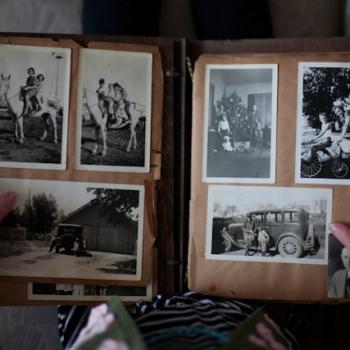
It seems like just yesterday, I was browsing the aisles of the local thrift store in search of a classic science fiction book to help inspire my writing. Soon I happened upon and purchased a paperback with a familiar title: War of the Worlds. I credit this book with my active love of science fiction. Wells is still one of my favorite authors, even after having read such books as The Martian, Frankenstein, and A Brave New World.
One of the things that most endeared this book to me was its clear allegory. In blatant terms, Wells addressed the efforts of colonization before and during 1898, the year of War of the World’s publication. He made obvious comparisons to invaders, giving his native England a taste of what it might be like to be on the receiving end.
That wasn’t all, however. The war scenes he wrote were some of the most powerful and terrifying in science fiction history, still inciting panic and fear when they were adapted into a dramatization for radio in 1938
Wells also addressed concepts such as hardship, religion, love, companionship, compassion for our fellow man in the midst of tragedy, and more.
The Enemy Descending.
Well’s explanation of the invasion of the Martians may seem outlandish so many years after the moon landing. However, in the late 1800s Wells was considered to be nearly prescient with his science.
The book never gives the main character a name. It uses an epistolary format, presenting itself as a series of writings by the main character and his brother. We as the audience hear the story as if it’s being told to us by a friend. The main character is home alone when the first cylinder, bearing a soft-bodied invader, strikes the earth. Things ramp up quickly as we witness, through the character’s first-hand experience and through newspapers and conversation, an influx of alien ships landing on Earth.
The alien’s advanced technology is well beyond anything England has ever seen. While this is a common trope for today’s own alien stories, it is only because of Well’s innovation in this novel. Wells created the alien invasion trope that has become so common in the genre.
Throughout the next few chapters we are subjected to horror after horror as three-legged war machines spread intoxicating smoke, incinerate the landscape with powerful weapons, and boil rivers dry. Our main character’s only desire is to find his wife.
The lead does encounter some interesting characters, including a despairing Curate and an artilleryman who is already planning a way to survive and fight back. A good part of this initial invasion, however, is also given to us by the lead character’s brother. He is in London, where there was some warning of what was coming. When war is obvious on the horizon, the brother and his neighbors barely escape over the channel.
Dominion
The second half of War of the Worlds gives us a small taste of what life on Earth looks like under the dominion of the Martians. The narrator finds himself locked in a crumbling building with the Curate he met earlier.
Together, they witness the atrocities of the Martians. The aliens seem to be hunting down the remaining humans and using them as a food source. From their hiding place, the two men watch a good amount of the alien’s behavior.
Eventually, the tension starts to get to both characters. The curate is slowly breaking down in a fit of despair. His loud cries and his mad ranting threaten to disclose their location. Eventually, he attempts to consume the rest of their limited food stores, and the lead character bludgeons him. The aliens hear the commotion and take the curate’s body.
When the narrator finally escapes the shell of the house, he cannot find the Martians anywhere. He wanders for a while, taking note of all the changes and the empty landscape. He interacts with a few earlier characters.
Eventually, he decides his only path forward is suicide, so he approaches a Martian tripod in an effort to be vaporized as he had seen happen with so many others.
Instead, he finds that the Martians are dead. They had been destroyed by Earthly viruses. Their immune systems were not adjusted to Earth.
While I can see how some commentators see this as lazy and anti-climactic, it fits the story perfectly. It highlights the fact that Earth had no possible way to fight back against the advanced race it was facing. More importantly, it reflects the reality of colonialism.

Sympathy for the ‘Savage’
During the time War of the Worlds was written, Britain was still the largest world power and colonizer. America was playing around with the idea. It was expected, during that time, that world powers had to also be empires. But America’s roots were in the escape from Colonialism. It didn’t want to become what it had so recently hated. Wells was an English author and took direct inspiration from the imperialism Britain practiced over the tiny island of Tasmania.
As with a lot of colonialism, viruses were both a weapon against the invader as well as a weapon against the natives. Malaria, for instance, was a large factor in keeping colonialists from places in Africa and South America and resulted in thousands of deaths. One of the reasons why Africans were used as slaves rather than white criminals and indentured servants was specifically because colonizers thought Africans might withstand the diseases.
If we were to expect a higher level of accuracy from Wells, Martians might initially die of colds and the flu. They would, however, leave behind an Andromeda Strain level threat before returning later with more forces.
It’s not the accuracy, though, that impresses me, but the perspective. Contemporary author Rudyard Kipling’s poem “The White Man’s Burden” reveals the more common perspective Well’s fellow authors held regarding colonialism. Colonialists, slaveholders, and even some missionaries sadly, held perspectives that placed them firmly in the place of benevolent heroes, coming to save the savages from themselves.
Jules Verne is often compared to Wells. However, you can strongly see the viewpoint of the era displayed in his book Around the World in 80 Days. That perspective is also present in the depiction of cannibals of my own childhood home, Papua New Guinea, in Verne’s book Twenty-Thousand Leagues Under the Sea.
What was so unique about Well’s take on colonialism is that Wells intentionally avoids “othering” the victims of colonization. Even modern critiques on colonialism, like Amazon Prime’s fantasy Carnival Row, couldn’t manage that.
Empathy is the ability to understand and feel what others feel because you have been in a similar situation. Sympathy is the ability to imagine what it feels like to be in that position. Both are essential to human relationships. Human beings are social creatures and hardwired to find groups with similar patterns to their own culture. We might divide ourselves by race, family, nationality, age, or interests. If you watch any teenage high school movie, you’ve likely heard the introductions to the various cliques. Empathy comes naturally. Sympathy, however, is a learned skill.
How to Learn Sympathy
It is difficult now, as it was in the 1800s, for people to be able to imagine a context and a life so different from their own. Witch doctors are so different from hospitals. We get our groceries from Walmart, not from the family garden. And let’s not even talk about the cognitive leap it takes to imagine eating grubs. We might be able to watch and enjoy a good K-Drama, but I cannot put myself in a mindset that would ever enjoy a gladiator game as entertainment. Some leaps are easier to make than others depending on the barriers of time, culture, and language we have to cross.
It is even harder to see these things and not equate “different” with evil. There are clear differences. Many tribes, for instance, believe twins occur when a demon invades the womb. Even today, twins are regularly killed to be sure the wrong one doesn’t survive. This is unequivocally evil.
On the other hand, we might show the example of a South American village where a father and mother might not even know which kid is theirs. They are all raised corporately throughout the village. This may be vastly different from our traditional family structure, but shouldn’t be outright condemned.
The book Bruchko, a brilliant memoir of a missionary who went against the expected missionary protocol of his time gives some powerful examples. Bruce (called Bruchko by the tribespeople) decided to teach the witch doctors how to identify disease. Instead of warring against their “evil” he chose to teach them what a germ was, and how washing their hands could save lives. He incorporated their beliefs into modern science. By doing so he grew closer to the village, rather than sparking the culture wars that ended so many missionary’s works. God saved many lives and souls through Bruce’s choices.
For you are all One in Christ.
Galatians 3:28 tells us “There is neither Jew nor Gentile, neither slave nor free, nor is there male or female, for you are all one in Christ Jesus”
This verse does not dismiss the beauty of the diversity in the World God created. A look through the Bible would further cement that. Even in the Old Testament, while God was covenanted only with the Jews, He eagerly included diverse people groups into the gospel.
God is encouraging us in this passage to see the common nature in the body of Christ so we can live together as one.
While we can, and must, delight in the differences we all have, we must also learn to listen and learn from others to learn sympathy. You may not understand what that widow may feel like sitting in the pew alone for the first time on Sunday. You may know, however, what it feels like to be a the third wheel with friends. Or you may know what it feels like to be away from someone you love or to feel left out.
You may not grasp what it feels like to be a member of the persecuted church in China, but you may know how it feels to be bullied. Maybe you have suffered abuse. Possibly, you were treated unfairly at work or in the social sphere due to your Biblical boundaries.
Yes, it may not be the same. But having that kind of curiosity and imagination, asking questions and listening, will allow us to empathize with people we aren’t normally in our circle.
Books have been one of the most powerful ways to teach sympathy for generations. We cannot experience life in someone else’s skin. However, a book allows us to effectively “walk a mile in their shoes”. Typically authors do this by balancing the foreign with the familiar. We give readers a large helping of something familiar: the feeling when your mother is making your favorite dish, for instance. Then we add a small dose of something foreign. That food may not be a childhood favorite you could not begin to imagine.
Wells used the familiar and the foreign to teach sympathy to colonizers intent on dehumanizing entire people groups. He kept the setting familiar and functional for his typical reader with a then modern everyday British experience. He then introduced the foreign threat of an alien force and let them feel what it might mean to be invaded and overtaken.
British people saw the countries they colonized as infantile and evil. By using advanced aliens who could not see the value in the people they were killing, Wells proved that might didn’t necessarily make right. He allowed his readers to feel exactly what the invaded people groups of colonialist Britain felt from the comfort of their own worlds.
This is also why Paul can say he has “Become all things to all men,” without compromising his morals or his identity. (1 Corinthians 9:19-23)
Sympathy is a taught skill. Unfortunately, is not one that has been taught well historically. While things like books, or self-improvement can help, it’s still an incredibly rare skill today. And an incredibly important one.
Scripture is pretty clear about how God views the matter. Philippians 2:3 says “No one should act out of selfish ambition (The opposite of sympathy) or in vain conceit, but in humility one should consider others better than oneself.”
What better example is there of this than Christ himself, who physically took on flesh and humbled himself to death on a cross (Philippians 2:8) Because of this “We do not have a high priest who is unable to sympathize with our weakness.”
Let us be like Christ. Let us follow Well’s example and learn from him. By asking questions, practicing curiosity, and pursuing connections, we can learn how to sympathize with one another and love more effectively.
Join us Friday, Nov 22, to ask the question, Is the Bible Fiction?













